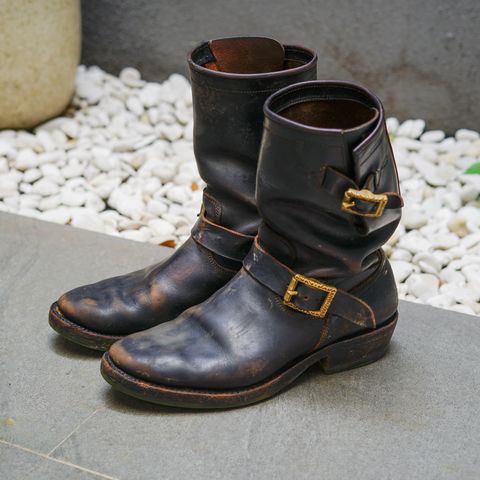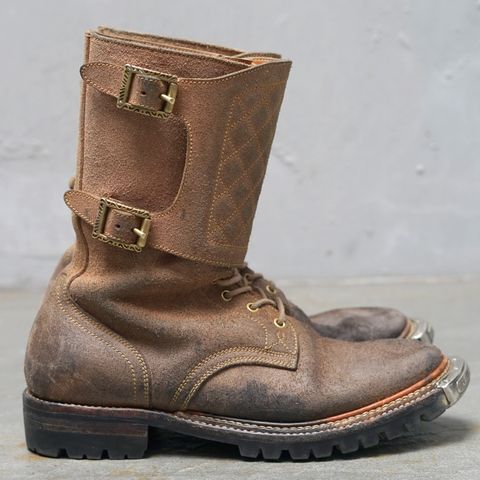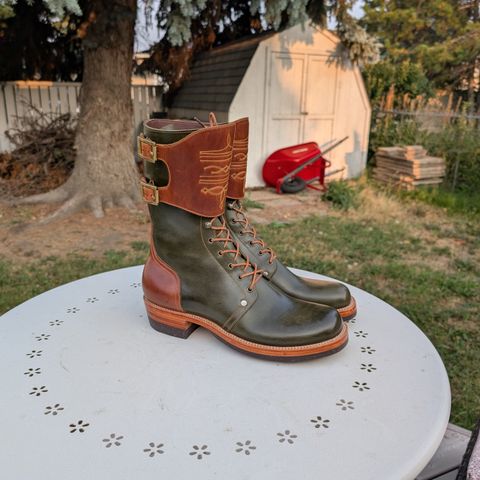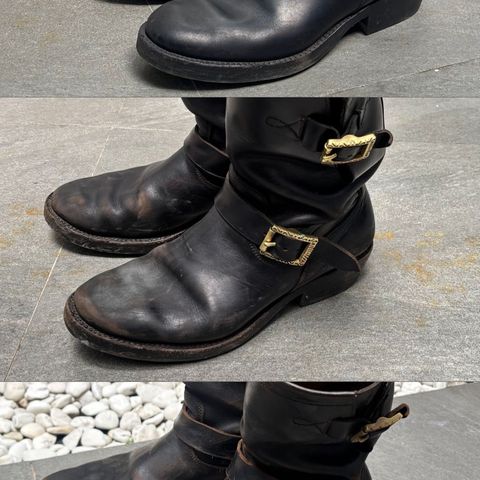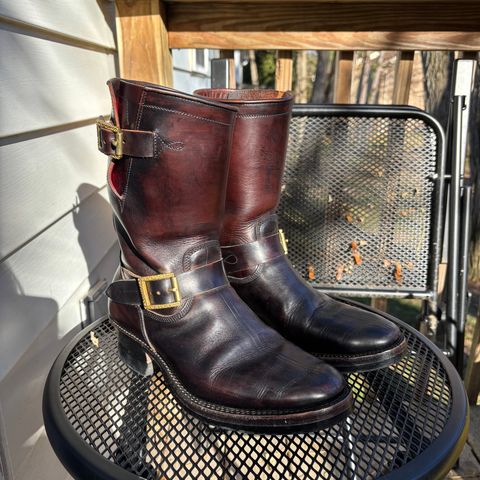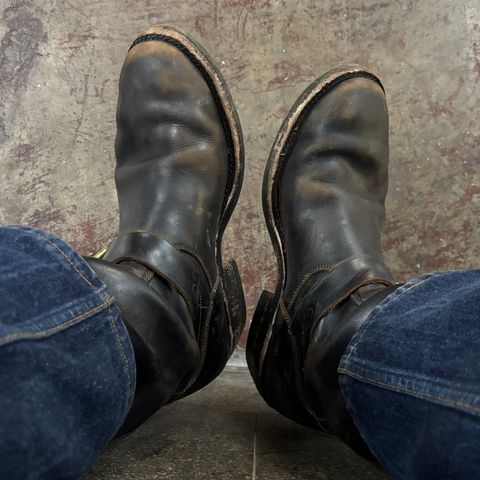Fortis Boots
MakerAbout
Fortis Boots is an Indonesian handmade footwear manufacturer based in Bandung, West Java, specializing in traditional hand-welted boot construction. The company produces made-to-order heritage boots using Indonesian black teacore leather and traditional craftsmanship methods, with production lead times typically ranging from two to three months.
About
Fortis Boots is an Indonesian handmade footwear manufacturer based in Bandung, West Java, specializing in traditional hand-welted boot construction. The company produces made-to-order heritage boots using Indonesian black teacore leather and traditional craftsmanship methods, with production lead times typically ranging from two to three months.
Fortis operates within Indonesia's artisanal bootmaking community, which traces its heritage to Dutch colonial shoemaking traditions introduced during the 19th and early 20th centuries. The company maintains an active presence on social media with over 21,000 followers on Instagram, where they showcase their handcrafted products and accept custom orders.
History and Heritage
Fortis Boots emerges from Indonesia's established bootmaking tradition centered in Bandung, a city recognized as the country's fashion capital. The Indonesian footwear industry developed from Dutch colonial influence, when the Netherlands ruled the region as the Dutch East Indies. Dutch colonists introduced welted footwear construction techniques to Indonesia, which local artisans adopted and preserved through subsequent generations.
The formal history of Indonesian shoemaking began around the 1910s-1920s when local craftspeople established dedicated shoe manufacturing companies. Many artisans from these early enterprises eventually established independent workshops, contributing to the growth of small-scale, artisan-focused production that characterizes the contemporary Indonesian boot scene.
The Cibaduyut region of Bandung, located a few hours from Jakarta, became the center of Indonesia's shoe industry. Until 1970, Cibaduyut was recognized as one of the longest shoe crafting streets in Asia, where handwelting techniques were widely employed.
Manufacturing and Craftsmanship
Fortis Boots employs traditional hand-welted construction methods that preserve 19th-century shoemaking techniques. While larger footwear manufacturers have transitioned to machine welting and lasting, Bandung-based artisans like Fortis continue to utilize hand-welting, hand-lasting, and hand-sewn Norwegian welt construction.
The company's production process emphasizes natural curing methods rather than forced molding. Handlasting allows craftspeople to control tension more precisely, resulting in superior fit and durability. Rather than using heaters or ovens to force leather into shape, the natural curing process takes approximately two weeks for leather to mold perfectly to the desired form.
Manufacturing takes place using traditional workshop methods, with individual artisans responsible for various stages of construction. The emphasis on handcrafted production contributes to the extended lead times but ensures attention to detail and traditional construction integrity.
Products and Specializations
Fortis produces several distinct boot styles, with pricing typically ranging from $400 to $480. The company's product line includes service boots available in both cap toe and plain toe configurations, Chelsea boots, and engineer boots featuring unstructured toe construction.
Engineer boots represent a specialty offering, constructed with Indonesian black teacore leather and featuring brass-colored buckles. These boots incorporate double and triple stitching in critical stress areas, Dr. Sole rubber outsoles, and natural woodsman leather heel stacks. The construction combines traditional aesthetics with functional durability features.
The company operates primarily through made-to-order production, accepting custom specifications and modifications. Orders are processed through social media channels and WhatsApp communication, reflecting the artisanal and personal nature of the business model.
Industry Context
Fortis operates within Indonesia's broader artisanal footwear sector, which has gained international recognition for producing high-quality handmade boots at competitive prices. Indonesia ranks among the world's ten largest footwear manufacturers alongside Vietnam, India, and China, though artisanal producers like Fortis represent a specialized segment focused on traditional methods rather than mass production.
The Indonesian bootmaking community has attracted international attention from North American and European markets seeking alternatives to industrial production. This interest has driven innovation in patterns, leather sourcing, and overall construction quality while maintaining traditional handcrafting approaches.
Bandung's reputation as a creative hub attracts artisans and craftspeople from throughout Indonesia. The city's community of cordwainers continues to employ traditional techniques including hand-welting, hand-lasting, and hand-sewn Norwegian welts, preserving methods that many Western manufacturers abandoned over a century ago.
References
"Fortis Boots". Boots of Indonesia. Retrieved September 23, 2025.
"Made in Indonesia: The globalisation of Indonesia's footwear industry and the legacy of shoemaking". Garland Magazine. Retrieved September 23, 2025.
"Traditional craftsmanship". UNESCO Intangible Cultural Heritage. Retrieved September 23, 2025.
"SAGARA : Indonesian Master Bootmaker Since 2010". Sagara Bootmaker. Retrieved September 23, 2025.
"Indonesian Arts & Handicrafts". Expat Indonesia. Retrieved September 23, 2025.
"The Artisans of Indonesia: A Cultural Heritage". Mexico Historico. Retrieved September 23, 2025.
"Fortis Engineer Boots 10-10.5". The Fedora Lounge. Retrieved September 23, 2025.
Fortis Boots Indonesia @fortis.bootsidn. Instagram. Retrieved September 23, 2025.
